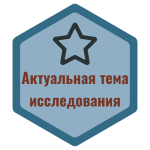This research is focusing on the people’s attitudes towards newly-introduced education system in Kazakhstan comparing it to the other counties. The interest lies in this area because it would be interesting to find out positive and negative sides of education systems in our country as well as its alternatives. The results of the research can help others understand the features of the education system in details, its aims and purposes.
Key words: assessment, educational system, attitudes, national, criteria-based.
There is a large number of different education systems in the world, so various countries implement dissimilar systems to teach students. That is why countries’ education systems are unique. It is known that the education Ministry of Kazakhstan recently introduced a new education system based on Cambridge’s experience and methodology into public schools. The new education methodology consists of a range of changes: tests were replaced with exams, students’ marks became independent from their activity during the lessons, and teachers’ attitudes to individuals stopped affecting their marks. The innovative education system was experienced in Nazarbayev Intellectual Schools already, so its efficiency could be estimated. The modern education system involves new criteria based assessment, transition to electronic diary, and implementing language awareness into the local schools.
The efficiency of one particular education system is impossible to estimate. That is why there are many different evaluation tests, exams and systems exist. American SAT exams based on standardized tests cover writing and language, reading, math, an optional essay sections. World Population Review says “Based on this study, China received the highest total score of 1731 and the highest score in all three sections” [3]. However, research made by the Organization for Economic Cooperation and Development (OECD) within 25 to 64 age group showed that over 56 % proceeded to education after school. Besides that, indicators of the United Kingdom are considered the highest basing on factors as Universities rate, well-developed public education system and high education quality [7]. These research data demonstrate that an ideal education system is difficult to implement.
Regarding Kazakhstan, the education system has been changing over the last 4 years. Improvements are directed to globalization and personal growth [6]. That is why schools’ policy is now focusing on the development of students’ critical thinking skills, and the ability to work with information. It would help students to change their career guidance and be prepared for the world’s technological development [2]. The modern education system involved in local schools marks students’ ability to analyze information and revel its consequences.
The current education system changed in different spheres. Firstly, the method of student knowledge evaluation has been replaced with criteria-based assessment, not traditional marking from 1 to 5, which gives an exact understanding of students’ achievements and knowledge. The results of students are posted in electronic diary. Secondly, the system is directed to the language acquisition.
According to the law of Kazakhstan, education in high school could be switched in English depending on the decision of the board of guardians [6]. Math and Science classes are suggested to learn in English, which would help the student to improve language comprehension. Also, education in Kazakh language is planned to be expanded. Thirdly, it was intended to decrease studying hours but proceed to 12-year education. According to OECD, the government plans to introduce 12-year compulsory education system by 2020 [2]. It will help to decrease physical and emotional strain. Education system faced significant changes that could positively affect the countries and students personal growth.
However, implementation of the new education system caused a range of problems. Students, teachers, and schools faced a lack of experience, knowledge, and equipment. The majority of current students disagree with implementing the new education system because of the extra compulsory academic year, inability to reclaim their mark and partial transition to English. Some students do not have sufficient language knowledge to study in English.
Teachers complain about considerable paperwork, detection of individual approach to every student and constant self-development are essential to every modern educator [2]. Professional development and skills improvement require a great amount of time. What is more, the current Ministry of Education encourages foreign knowledge of the language, and people with extensive language awareness are prioritized, so it became harder for teachers to find a job. As the majority of local schools were built during the Soviet Union, they suffer from hardware scarcity and its substandard quality. Required standards of necessary conditions are unrealizable in some schools. Science and ICT classrooms assume special equipment for safety and practical education.
Methods of data collection
It was planned to include the official documents’ analysis and review as well as to find out people’s attitudes to the changes in the education system. Primary research contained semi-structured interviews, which were directed to 3 different focus-groups. Retrieved data have fully represented the topic because the main goal was to identify a general attitude to the changes in the education system. People from the three different groups were asked so that the problem could be seen from different perspectives. These three groups included teachers, students, and other people, who are not directly connected with changes in the education system. It was planned to ask 5 to 10 people from each sub-group, so different opinion views could be compared.
Research Findings
Below there is a chart (fig.1) summarizing the main findings in attitudes of people towards newly-introduced system of education:
|
QUESTIONS |
STUDENTS (10) |
TEACHERS (5) |
OTHERS (6) |
|
What is your general attitude to the changes in the education system in Kazakhstan? |
2 — Positive (“effective”, “positive changes”); 8 — Neutral (“no considerable changes”, “neutral”, “nothing changed”, etc); |
5 — Positive (“effective changes”, “positive”, “absolutely positive”, “helpful”, etc); |
3 — Positive (“positive”, “better”); 2 — Neutral (“I’m not fully aware”, “neutral”, “don’t care”); 1 — Negative (“negative and inefficient”); |
|
What difficulties had you faced with after introducing the changes? |
2 — No struggles (“no troubles”); 3 — Struggles during the habituation process (“hard to adapt”, “the adaptation process was hard”); 3 — Problems with the distribution of workload (“the workload is extremely high”, etc); 1 — “the compulsion to set priorities” 1 — “the requirement of high self-discipline” |
2 — No difficulties (“Made easier”, “no troubles”); 1 — “A lot of assessment”; 1 — “Adaptation struggles”; 1 — “Way of leading the lesson completely changed”; |
3 — No changes (“nothing changed”, “everything stayed the same”, etc); 2 — Struggles with online diary (“hard to check the diary”, “hard to orientate in the web-side”); 1 — Child’s health problems (“daughter’s health got worse”); |
|
How can these changes affect students’ future life? |
9 — No effect (“do not consider them [changes] significant”, “no effect”, “nothing”, “future depend on me only”, etc); 1 — “It can affect the diploma”; |
1 — “Not really. Students’ attitude matters more”; 4 — Positively (“higher workload helps to become a stress resistant”, “self-assessment and independence”, “development of responsibility”, etc) |
5 — No effect (“not sure”, “no effect”, “probably, will not affect”, etc); 1 — “Marks will affect the entrance to the Universities”; |
Conclusions
Concerning how the education system in Kazakhstan has changed after the USSR collapse, most of the changes are directed to the student’s personal growth and the whole country’s development. These changes could lead to an increase in the education index in the country. If the education in Kazakhstan aims to the globalization, it will open new opportunities to every student, and the country in general.
It was also identified that people with a distinct level of connection to these changes consider modern education methods as very effective. However, taking into consideration the pros and cons, which were determined by people, who are directly connected to education (students, teachers), the modern education system can become more effective. From the mentioned, most of students faced with problems of distribution of the workload and adaptation, teachers, in turn, identified that way of conduction the lessons had changed, as well as a lot of assessment work appeared. Lastly, parents also experienced difficulties with the online diary. Mentioned problems have a huge impact on the education process, reducing its efficiency. Taking to account the people’s responses, the government might implement some changes to increase the efficiency of education.
References:
1. Curriculum Overview: Curriculum: Cambridge International School. (n.d.).
2. Education Policy Outlook Kazakhstan (PDF) — OECD.com, 2018.
3. Education Rankings by Country 2020 — worldpopulationreview.com, 2020, February 17.
4. Новая система образования в Казахстане. — Golnik, Oksana, 2019, December 20.
5. PISA 2012 Results: Excellence through Equity (Volume II). — 2013.
6. Resolution of the Government of the Republic of Kazakhstan. “Resolution of the Government of the Republic of Kazakhstan dated July 24, 2018 No. 460 for 2016–2019.” — Kaznpu, 2018, June 24.
7. The UK education system — Expat Guide to the United Kingdom. — expatica.com, 2019, February 14.










